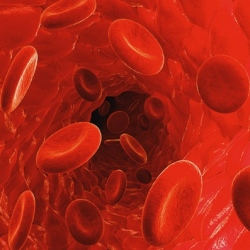
Drugs were created to block a protein called the mammalian target of rapamycin (mTOR) and it boosted the immune system by about 40% in elderly people. They safely reducing infections in elderly volunteers around 40% by enhancing the immune system.
In 2004, tests that blocked a similar enzyme in fruit flies gave them a longer lifespan. Science – TORC1 inhibition enhances immune function and reduces infections in the elderly
Dialing down TORC1 dials up immunity
Aging may be regulated by a discrete set of intracellular proteins including the mechanistic target of rapamycin (mTOR) kinase. mTOR functions within two multiprotein complexes called TORC1 and TORC2. Inhibition of TORC1 has extended life span in every species studied to date and ameliorated multiple aging-related pathologies including declining immune function.
Mannick et al. now show that low-dose TORC1 inhibitor therapy in elderly humans decreased the incidence of all infections, improved influenza vaccination responses, and up-regulated antiviral immunity. Thus, targeting the TORC1 pathway that regulates aging may have clinical benefits for elderly humans including improvement in immune function and decreased infection rates.
